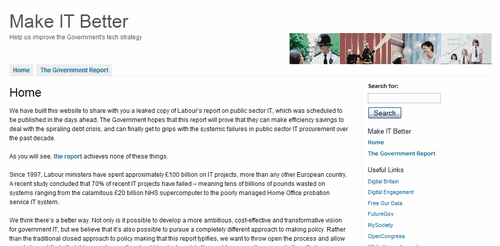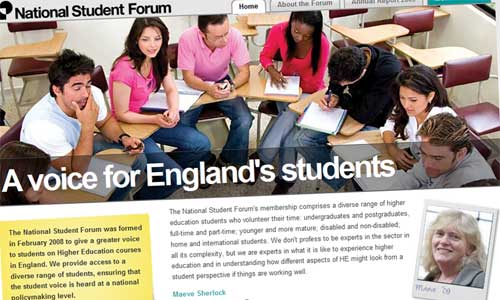We’ve all learned to be cynical about government announcements – but I’m reading through today’s ‘Putting the Frontline First: Smarter Government’ paper, and I can’t help smiling. We certainly aren’t in a position where the PM can make a policy declaration, and it all falls into place by lunchtime; there are some vicious battles ahead. But there can’t be much doubt, surely, that the tide has now turned in favour of open data, accountability, transparency, third-party innovation, and technology which is both smarter and cheaper.
The paper’s ‘action points’ list looks like an agreement to do many, if not all the things we as a ‘gov 2.0’ community were asking for. A few highlights:
- Establish common protocols for public services to exchange information
- Consult on and release valuable public sector datasets – including mapping and postcode, Public Weather Service, detailed government expenditure, various transport and health datasets
- Enable a single point of access for government held data through data.gov.uk (to launch Jan 2010)
- Launch a public consultation index through Directgov (although we’ve had this before)
- During 2010: Ensure public consultations have online tools for interactive dialogue (er, WordPress I guess?)
- During 2010: Ensure the majority of government-held data published in reusable form
- By 2011: Publish all comparative data on www.data.gov.uk and ensure that it is sufficiently consistent to enable cost comparisons to be made across services
- For the longer term: Reduce consultancy spend by 50%, and communication and marketing spend by 25%
And there’s plenty more, deeper into the report: prototype building, ONS data into data.gov.uk, ‘direct’ involvement for users in service design, local breakdowns of stimulus spending, a whole section on ‘Harnessing the power of comparative data’, and a pledge for ‘the majority of government-published information to be reusable, linked data by June 2011’. In fact, I’m struggling to think of anything on the wishlist which hasn’t been ticked off.
It’s important to see this in the widest possible context. This is just Whitehall accepting the reality many of us recognised long ago. This is a Labour government looking for causes around which to build its general election campaign; and of course, trying to steal something of a march on their rivals and likely successors: see Cameron’s pledges of June this year.
And it’s reliant on existing institutions, contract-holders and vested interests coming round to the new way of thinking. Like forcing Ordnance Survey to surrender their data. Escaping the restrictions of costly outsourcing arrangements. And embracing the tools and methods of the new ways of thinking, just as much as the mindset. Past performance doesn’t give much cause for optimism, perhaps: but at least there’s evidence of a desire to take the fight to people like OS.
The naming of the document is intriguing: having been known as the ‘Smarter Government’ paper for some time now, it emerges with the classically anodyne (and ultimately meaningless) title of ‘Putting the Frontline First’. Clearly, they were too nervous about presenting their vision as too technologically-driven – understandable, I suppose. But that’s precisely what it is.

 News from the Foreign Office
News from the Foreign Office


